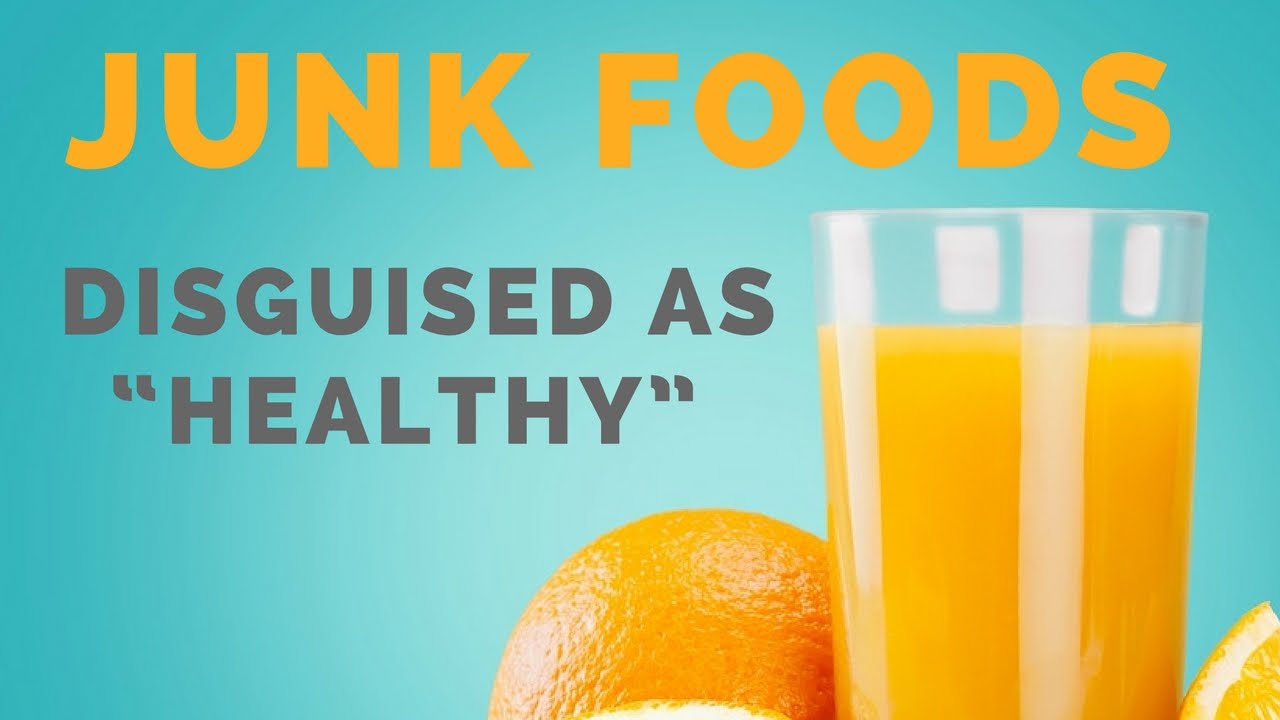4 “Health Foods” That Are Actually Junk Foods in Disguise

1. Processed “Low-Fat” and “Fat-Free” Foods
The “war” on saturated fat was a big mistake in the history of nutrition. It was based on weak evidence, and saturated fat is now largely considered by experts to have a neutral effect on health.
When it all started, processed food manufacturers jumped on the bandwagon and began removing the fat from foods.
But there’s a huge problem… food tastes terrible when the fat has been removed. That’s why they had to add loads of sugar to compensate.
Saturated fat is pretty harmless, but added sugar can be very harmful when consumed in excess, which is not all that difficult to do.
Unfortunately, the words “low-fat” or “fat-free” on a packaging often mean that it’s loaded with added sugar.
2. Margarine
Back in the day butter was demonized due to its high saturated fat content. Various health experts and organizations started promoting margarine instead.
While margarine is now virtually free of harmful trans-fats, it’s still just a mixture of refined vegetable oils and other ingredients designed to look and taste like butter.
Except… it tastes much worse than butter, and shows no health benefits over regular butter consumption.
In fact, the Framingham Heart Study found those who replaced butter with margarine were slightly more likely to die from heart disease. So they are probably on par with each other.
Now, that’s not to say that butter is a health food, because that has been oversold to us as well. Basically eating more butter than you normally would is not healthy, much like eating more margarine.
3. Fruit Juice
A lot of people believe fruit juices to be healthy. After all, it’s made from fruit… right?
But most fruit juice you find in the supermarket isn’t really fruit juice.
Sometimes there isn’t even any actual fruit in there, just artificial ingredients that taste like fruit.
What you’re drinking is basically fruit-flavored soda or soft drink, without the bubbles.
That being said, even if you’re drinking 100% quality fruit juice, it’s still not a great idea.
Fruit juice is like fruit, except with all the good stuff (like the fiber) taken out… the main thing left of the actual fruit is the sugar.
If you didn’t know, fruit juice actually contains a similar amount of sugar as a regular sugar-sweetened beverage, like coca cola or pepsi.
4. Sports drinks
Following on from juice, sports drinks are also not as healthy as they appear.
They were first designed for elite athletes, so they contain electrolytes (salts) and sugar for energy.
However… most regular people don’t need any additional salts, and they certainly have no need for liquid sugar.
Although often considered “less bad” than sugary soft drinks, there really is no difference except that the sugar content is sometimes slightly lower.
No doubt it’s important to stay hydrated, especially around workouts, but the vast majority of us are WAY better off sticking to regular water.
It’s fair to say that if the packaging of a food says that it’s healthy, then it probably isn’t. Because the truly healthy foods are those that don’t need any health claims.
Study mentioned in video:
Study 1: http://www.ncbi.nlm.nih.gov/pubmed/9229205



![[ID: Hx_A0iLhdr8] Youtube Automatic](https://bizimtube.com/wp-content/uploads/2021/03/id-hxa0ilhdr8-youtube-automatic-236x133.jpg)
![[ID: lp7w0UmpuIs] Youtube Automatic](https://bizimtube.com/wp-content/uploads/2021/03/id-lp7w0umpuis-youtube-automatic-236x133.jpg)
![[ID: s2-7T1TH-lY] Youtube Automatic](https://bizimtube.com/wp-content/uploads/2021/03/id-s2-7t1th-ly-youtube-automatic-236x133.jpg)
![[ID: b_lakC9M4UQ] Youtube Automatic](https://bizimtube.com/wp-content/uploads/2021/03/id-blakc9m4uq-youtube-automatic-236x133.jpg)
![[ID: r44yl6nPONs] Youtube Automatic](https://bizimtube.com/wp-content/uploads/2021/03/id-r44yl6npons-youtube-automatic-236x133.jpg)
![[ID: pAwto1YQjA8] Youtube Automatic](https://bizimtube.com/wp-content/uploads/2021/03/id-pawto1yqja8-youtube-automatic-236x133.jpg)
![[ID: XETG8azHiv4] Youtube Automatic](https://bizimtube.com/wp-content/uploads/2021/03/id-xetg8azhiv4-youtube-automatic-236x133.jpg)
![[ID: f3G_-S_2HUk] Youtube Automatic](https://bizimtube.com/wp-content/uploads/2021/03/id-f3g-s2huk-youtube-automatic-236x133.jpg)
![[ID: G8oWns54snA] Youtube Automatic](https://bizimtube.com/wp-content/uploads/2021/03/id-g8owns54sna-youtube-automatic-236x133.jpg)
![[ID: s0lIFXhu6aw] Youtube Automatic](https://bizimtube.com/wp-content/uploads/2021/03/id-s0lifxhu6aw-youtube-automatic-236x133.jpg)
![[ID: 4UTd2Ev8eYg] Youtube Automatic](https://bizimtube.com/wp-content/uploads/2021/03/id-4utd2ev8eyg-youtube-automatic-236x133.jpg)
![[ID: RKBGBjVJBxQ] Youtube Automatic](https://bizimtube.com/wp-content/uploads/2021/03/id-rkbgbjvjbxq-youtube-automatic-236x133.jpg)